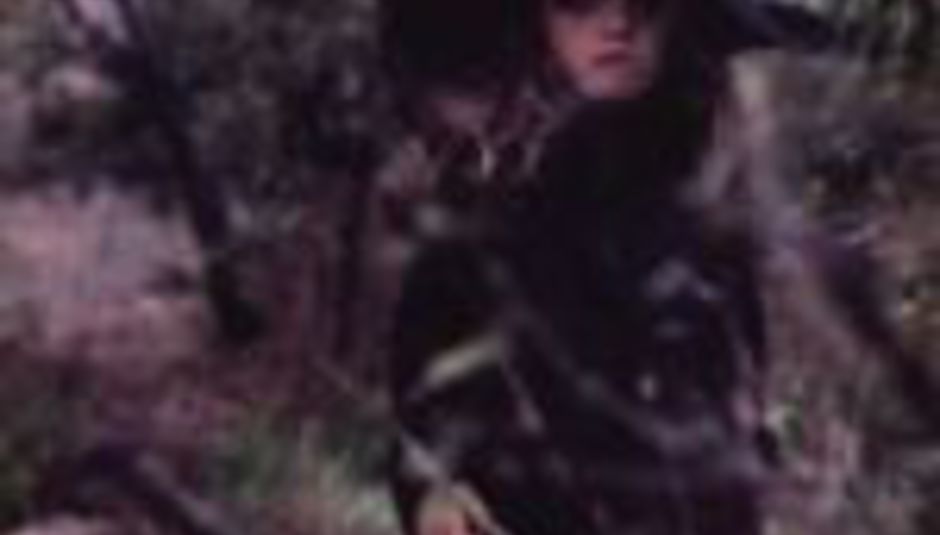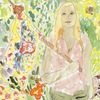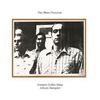Some records slip beneath nearly every radar. These brilliant albums end up not only missing out on end of year plaudits but throughout the year these records failed to procure the reams of verbiage they deserved. These are the outsiders; the records which people weren't brave enough to crank out on their airwaves, nor to fill a page or two of their publications with. These are the records so special that our writers sent death threats to our offices for not including them in DiS' 50 albums of 2008.
So without further ado, these are the eight that you (and we) should have been celebrating.
Grouper
I can understand the appeal of the Bon Iver story. All music publications look for a hook to hang an album on, and the shack in the country angle was too good to pass up. After all, isn’t authenticity what we really crave in our artists? That the creative process should mimic the actual art-work itself; as sad as Daniel Johnston’s mental problems are, they undoubtedly make his music that much more poignant. And why shouldn’t they? After all, material events, the context around which a album, or a film, or whatever, is created obviously has a bearing on our perception of said artwork. Yet what if there is no defining ‘story’ behind a record? Shouldn’t our role as discerning consumers/listeners be to be able to pick out and appreciate music without needing or relying on a clear narrative to sell it/be sold? Not that we should disregard how an album has been made, or the circumstances that surround it, but rather not see it as the defining characteristic; or rather, see things as less black and white.
It’s exactly this preoccupation with shade that, for me, makes Grouper’s Dragging A Dead Dear Up A Hill the album of the year. Most of Liz Harris’s previous output had been equally arresting: thick, rich atmospheric songs wrapped in layers of reverb and lo-fi crackle. Here, however, for the first time, she chose to peel back some of that protective scar tissue, leaving the songs themselves exposed and, partially, audible for the first time. Not that these can be described as ‘traditional’ songs – on almost all the tracks its still impossible to make out most of the lyrics, whilst the vocals and guitar still have an almost choral coating of feedback.
Yet by opening her songs up, Harris has made them more affecting, more approachable. Indeed, what makes Dragging... such a touching, remarkable album, is its vulnerability, the songs themselves seeming extraordinarily fragile and dreamlike. The overarching theme of the record is the very subtlety with which the tracks themselves are created, the thin dividing line between shadow and light, decay and life. So there are numerous references to dreaming and sleeping, alongside titles that reference gutting fish and dragging dead dears. Perhaps the most significant imagery is that of the sea, something that crops up over and over again in the album’s words and song titles. The ocean best exemplifies the impression that Dragging... leaves you with: that the same thing can be at once terrifically cathartic and painfully overwhelming. What makes Harris unique is that rather than delve further into the murky realm of the self – emphasising the ‘story’ behind her music, or even making that music about her – she explores what happens when you step into the shade, the grey areas where individuality breaks down, merging into the background, the wider picture.
The half-audible lyrics make this process all the more powerful, allowing you both to interpret them as you chose and to place the emphasis on the overall effect of the music. In that respect, Dragging... perhaps most closely resembles Panda Bear’s hypnotic 'Young Prayer'. Yet even that album doesn’t quite achieve the almost tragic scope of the soundscapes here. On one track Harris sings, “invisible, I’ve become invisible”, and you realise that it’s possible to feel both scared and enchanted by that sentiment. Here, there is no quantifiable ‘story’, but rather something altogether more challenging – a journey into the shadows, a place at once beautiful, complex and frightening.

I was so fascinated by Dragging... that I asked Liz if she would answer a few questions about its inception and what it means to her; she was kind enough to respond:
Before you made the album, did you start out with any specific aims? For example - what did you want the album to sound like? What emotions did you want to convey/express?
Most writing for me feels half pre-meditation, half shaping it as I go. I don't really go looking for something, it's more like answering the door when someone's knocking, but sometimes the door takes second to find. I did set out to create a cohesive vessel from pieces I had been recording which all felt like they should go together. And I did want it all to feel fluid and connected, and have tried to do that with the other releases I've done as well. The composition of the entire thing always feels at least as important as the perfection of each individual song.
Was the process of writing and recording it broadly similar to your other records?
It took longer, I chewed on it more. Like carving something as opposed to pouring cement. I had little free time on my hands to work on it, was trying to travel, doing more sound work details, and changes were slow. John (Type) and I joked about how I'd cursed the album by its name—that it's making became an example of the action in the title. Specifically, each part of the process just took a long time. In the end I just felt that it needed to do that, and didn't worry about it, just let it spin out at its own pace.
A lot of the songs mention transitory states ('Sleeping', 'Dragging', 'Falling'). What is it about these states of being that interest you?
I can't say that all that is conscious. The world does seem to constantly be moving. I do like to stay moving, I'm very watery. Very into the idea of accepting and going with constant change, into adapting and trying to expand outwards. I'm going to cloud her memory with my blockish paraphrasing, but Octavia Butler said through one of her characters in the Earthseed series that change is the only real force consistent and strong enough to be considered a god, the only thing worth worshipping with your awareness and submission.
Can you explain the relationship between the violent imagery of some of the tracks ('Gutting' a fish, 'Dragging' a dead deer) and the seemingly more innocuous thoughts other songs express (like, 'I'd rather be sleeping')?
There has to be some blood. Darkness and decay are fundamental as happiness and longevity. My friend who writes poetry, and who I admire the brain of, said to me that a hard thing to convey, and an element she always finds admirable in a creative vessel is the presence of both light and darkness, in a way that still acknowledges the beauty of both. We all have both in us, moving around and taking turns. "'I'd Rather Be Sleeping/Heavy Water" is about how I'd rather drown in the ocean than live in the real world without the freedom and the emotion that can be felt in dreams and the internal world, because then at least it would be nearly as intense. I think if you could see the lyrics of the other songs too you'd see that none of them are really just happy or flitty. All of them have a rust.
What significance do these images of decay have for you?
Decay is a reminder of the temporary nature of the vessel we're in. A fascinating reminder. To decay is to return your clothing, to give back the shell. Have been thinking a lot about the relationship between the spirit and the vessel, definitely see them as separate though close, like a hand inside a glove. Sometimes it feels like a trap, sometimes it feels like an amazing synthesis of spirit-with-intent and capable machine.
This may be related to the last question, but can you explain how you came about the title of the record?
Seems like we all make our own history with our own mile markers, turn moments into symbols that serve to explain something about how we are who are we are in the present. I dragged a dead deer up a hill as a child and the image stayed in my mind. That was a mile marker for me, I've woven it in, made all the lines bold.
What does 'becoming invisible' mean to you? Is it a peaceful, or a painful process?
It's both. I think ultimately I cherish being able now and then to fade in to the background and not have to interact with anyone, not be subject to the everyday kind of glancing on the street, being in close proximity to other people, talking to other people, etc. As a child I spent most my time finding a quiet spot to be alone in, my friends were in ghost worlds and in dreams. I wanted to be invisible, to go to one of those other worlds. At times you feel invisible because no one is seeing you though, and you don't necessarily want to be invisible then, you want to be seen or thought of, remembered.
What role does the sea play in the imagery of the album? Is it a benign or a threatening presence?
A benign surrender to its threatening presence. Seeing a tidal wave rear up and throwing myself in to it. Being lured off shore by the horizon in to deep water and then letting myself drown peacefully rather than turn back. Preferring to be offshore treading water or at the bottom of the ocean than on dry ground.






















